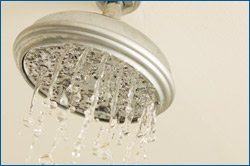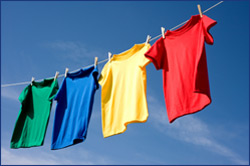Heating Oil Resources
Benefits of Oilheat
Oilheat is the best fuel for home heating because it is safe, clean and economical.
Safety Nothing beats the safety record of Oilheat. The fuel's composition is very different from that of either gasoline or utility gas. For example, Oilheat cannot even burn in a liquid state, and it is not explosive. In order to burn heating oil, you must heat it above 140 degrees - the temperature at which it begins to vaporize. That's why you can store a substantial supply of Oilheat on your property without risk or regulation.
Nothing beats the safety record of Oilheat. The fuel's composition is very different from that of either gasoline or utility gas. For example, Oilheat cannot even burn in a liquid state, and it is not explosive. In order to burn heating oil, you must heat it above 140 degrees - the temperature at which it begins to vaporize. That's why you can store a substantial supply of Oilheat on your property without risk or regulation.
Cost
In 2016, heating oil prices fell to their lowest level in over a decade, and experts predict that prices will continue to remain relatively low for years to come. On the other hand, natural gas prices have been rising each winter, are expected to continue increasing, and remain historically higher than heating oil prices on a BTU-for-BTU basis.
Cleanliness
Heating oil burns so cleanly that its emissions aren't even regulated by the Federal Clean Air Act. The introduction of new blends such as Bioheat® and reduced-sulfur Oilheat will make our fuel even cleaner in the years ahead.
Comfort
Heating oil produces the hottest flame of any home heating fuel, heating your home faster, with less fuel, and keeping your rooms at the temperature you want.
Efficiency
The Oilheat industry's hard work to produce energy-efficient equipment has paid off: Some of today's new heating systems have efficiency ratings of up to 95%! Compared to a heating system from 1980 that took an average of 1,400 gallons to heat a home, a modern heating system takes an average of only 700 gallons!
Dependability
Oilheat is derived from crude oil that is drawn from wells in the U.S., Canada, Mexico and many other countries. In fact, only three of the top 15 countries from which the U.S. imports crude oil are in the Middle East. The fossil fuel component of heating oil is now supplemented by domestically grown, plant-based biofuels that are renewable. Researchers are developing technologies to extract biofuel from non-food plants such as algae to ensure a plentiful, cost-effective supply.
Conservation Advice
Year-Round Tips
These tips can help save energy in every season.
- Install a digital programmable thermostat. It puts your heating and cooling systems on an automatic schedule: full heat or cooling during hours when the home is active, and less when the house is empty or the family is asleep. The U.S. Department of Energy (DOE) says that setting back a home's temperature by 10 to 15 degrees for eight hours a day can reduce total heating and cooling costs by 5 to 15 percent.
- Insulate thoroughly to reduce heat transfer through your walls, ceilings and floors. You could cut your heating and cooling costs by as much as 15 percent, according to Consumer Energy Council of America.
 Replace outdated appliances with high-efficiency units to reduce energy consumption.
Replace outdated appliances with high-efficiency units to reduce energy consumption.- Replace incandescent light bulbs with compact fluorescent light bulbs (CFLs), that use only 25 percent as much energy and last 10 times as long.
- Reduce water heater temperature setting to 120 degrees to save fuel. (You'll also reduce the risk of scalding.)
- Add caulking and weather-stripping around doors, attic access, windows, outdoor faucets and any areas where there might be leaks. (As much as 40 percent of your heating and cooling costs can be due to air leaks.) Check caulking at least once a year and replace material that has dried out and shrunk.
- Install rubber gaskets behind outlets and switch plates on exterior walls. (Gaskets can be found in most home improvement stores.)
- Check weather-stripping and door sweeps at least once a year and repair or replace them as needed.
- Repair and weatherize your storm windows.
- Close off rooms you don't use - and remember to shut the vents inside.
- Install dimmer switches. In addition to enhancing the mood, they'll extend the life of your bulbs and help you save up to 60 percent on your lighting costs.
 Install motion activated switches that automatically turn lights on and off.
Install motion activated switches that automatically turn lights on and off.- Install water-conserving fixtures, such as showerheads, faucets and toilets.
- Fix leaky faucets, especially hot water faucets. One drop per second can add up to 165 gallons per month - more than a person uses in two weeks.
- Take showers instead of baths. A five-minute shower will use about 7.5 gallons of hot water; filling a bathtub can use up to 20 gallons.
- Keep ductwork in good repair by sealing leaks with mastic, metal-backed tape. Your home could be losing up to 25 percent of its heated or cooled air before it reaches the vents!
- Install ceiling fans. They could cut your energy bill by 40 percent.
- Use efficient temperature settings for your refrigerator and freezer. Recommended temperatures are 37 to 40 degrees for the refrigerator and 5 degrees for the freezer.
- Don't leave the fridge door open! Every time you do, up to 30 percent of the air inside can escape. The same can be said for your oven.
 Use less water and use cooler water when doing laundry. The warm or cold water setting on your machine will generally do a good job of cleaning your clothes. Switching your temperature setting from hot to warm can cut a load's energy use in half.
Use less water and use cooler water when doing laundry. The warm or cold water setting on your machine will generally do a good job of cleaning your clothes. Switching your temperature setting from hot to warm can cut a load's energy use in half.- Consider air-drying clothes on clotheslines or drying racks. Clothing manufacturers recommend air-drying for some fabrics.
- Use a covered kettle or pan to boil water; it's faster and uses less energy.
Cold Weather Tips
- Insulate your hot water tank. The U.S. Department of Energy recommends that you insulate the tank or water heater and the first six feet of hot water pipe.
- Have your heating system tuned. A well-tuned boiler or furnace burns 5 percent less fuel.
- Wrap your pipes to guard against heat loss and prevent them from freezing.
 If you have a furnace, clean or replace the air filter once a month to ensure the best airflow and efficiency. Make sure that furniture or draperies do not block vents.
If you have a furnace, clean or replace the air filter once a month to ensure the best airflow and efficiency. Make sure that furniture or draperies do not block vents.- Sunshine! Open shades and drapes during the daytime and close them when the sun goes down.
- Seal off your attic-circulating fan with polyethylene and tape.
- Upgrade your heating system. Homeowners who have older Oilheat systems can lower their fuel costs by 30 percent or more by installing a new, high-efficiency system. New designs incorporate technologies like condensing and multi-stage operation to squeeze every ounce of heat from the system. The savings provide a remarkable return on investment that keeps paying off year after year - every time the weather turns cold.
- Avoid using space heaters. They're expensive to operate and can be dangerous.
Warm Weather Tips
- Keep drapes, blinds and shades closed during the day to block out the sun.
 Clear furniture away from air conditioning vents.
Clear furniture away from air conditioning vents.- Install an attic fan - it can cool your attic by nearly 30 degrees!
- Cook on the outdoor grill to keep cooking heat outside the home.
- Plant shade trees due west of west windows. It could reduce your air conditioning bills by up to 25 percent!
- When cooking inside, use a microwave instead of a conventional oven. It uses less than half the power and cooks food in about one-fourth the time.
- Install reflective window coatings to reflect heat away from your home.



